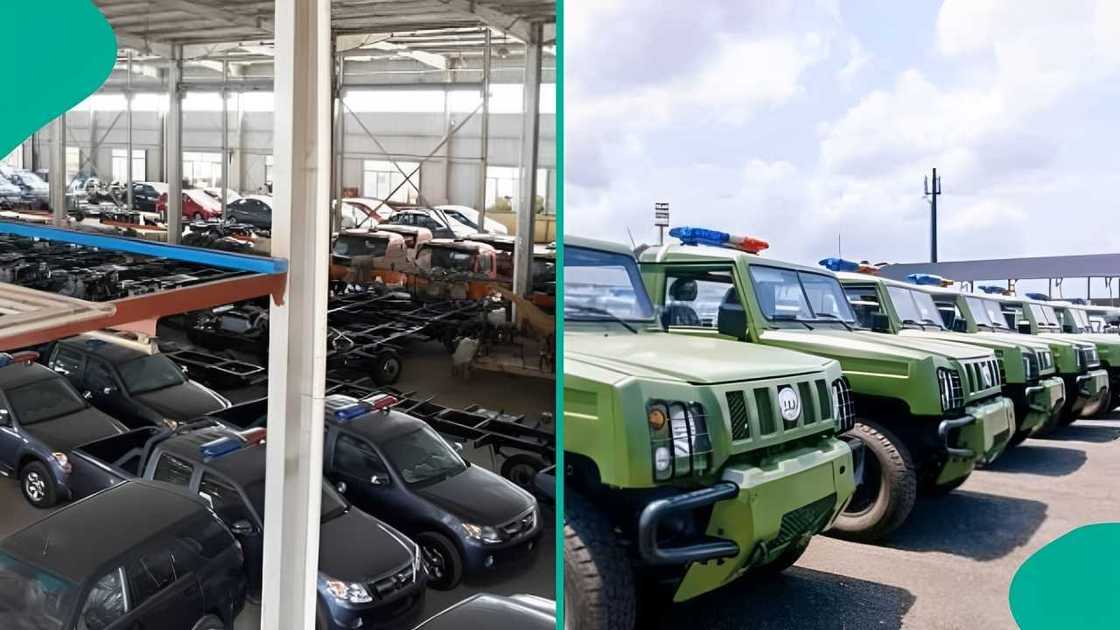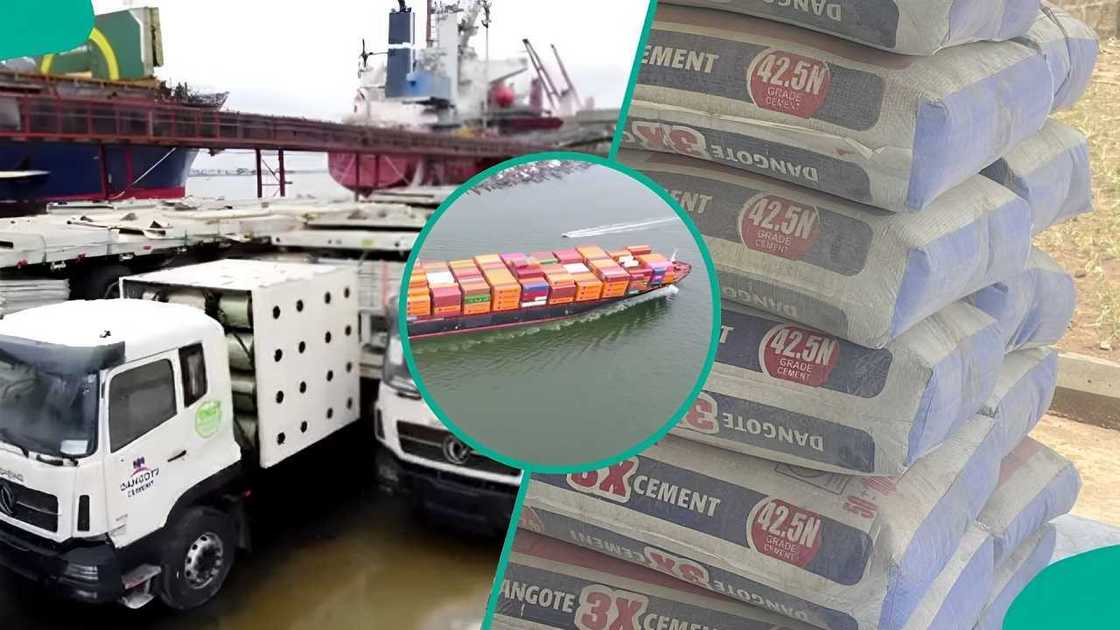Leveraging Intra-African Trade to Boost Nigeria’s Manufacturing Sector
In 2022, Innoson Vehicle Manufacturing (IVM), Nigeria’s first indigenous automobile manufacturing company, secured a $4.7 million deal to supply vehicles to the government of Sierra Leone, as ordered by the Sierra Leonean Ministry of Defence. The automobile company, established in 2007 by Innocent Ifediaso Chukwuma, a Nigerian businessman and entrepreneur based in Nnewi, Anambra State, produces a range of buses, cars, and trucks using approximately 70% locally sourced components.

Source: Twitter
“The first set of these vehicles has been supplied from Nigeria to Sierra Leone and was discharged at Queen Elizabeth 2 Port (Sierra Leone’s sea Port, Water Quay) in Freetown for distribution to military officers across the country,” Innoson said in a statement after the first batch delivery.
Without any iota of doubt, the successful export of these vehicles to a neighbouring African nation clearly highlights the seemingly untapped potential Nigeria holds in expanding its manufacturing base through intra-African trade, especially within the framework of the African Continental Free Trade Area (AfCFTA).
The AfCFTA, launched in January 2021, is the largest free trade area in the world by number of participating countries —54, covering a market of over 1.3 billion people with a combined GDP of more than $3.4 trillion. At the forefront of its objective is to “create a single market for goods, services, facilitated by movement of persons to deepen the economic integration of the African continent....”
Another core of its objective is to “promote and attain sustainable and inclusive socio-economic development, gender equality and structural transformation” among the country partners.
Nigeria, Africa’s most populous country, boasts a manufacturing sector dominated by cement and building materials, food and beverages, tobacco, chemicals and fertilisers, wood, and textiles. Yet, despite this potential, intra-African trade has remained relatively low. However, recent data suggests a promising shift.
According to the National Bureau of Statistics (NBS), Nigeria only witnessed a remarkable surge in intra-African trade, increasing by 195% year-on-year to N2.911 trillion in the second quarter of 2024, as Intra-African trade increased by 7.2% in 2023, reaching $192 billion, based on a report released by the African Export-Import Bank (Afreximbank). This impressive surge was largely driven by the export of manufactured goods such as cement, beverages and processed food.
Dangote Cement, for instance, is a dominant player in Nigeria’s industrial sector. Currently, it operates plants and exports to neighbouring African states such as Ghana, Cameroon and Senegal; thereby reinforcing the role of pan-African expansion in boosting local production capacity.

Read also
Nigeria relaunches National Talent Export Programme to unlock $1trn global outsourcing market
Another case study is BUA Group, a Nigerian conglomerate that is actively involved in both cement and sugar export, just like Dangote. BUA prides itself as “diversified investments spanning key business sectors of the African economy.” To maximise the outputs of these companies, Nigeria must provide a thriving system that will boost super-friendly competitions among the manufacturers of essential products, and give them wings to fly without limit.
Although crude oil remains the country’s major export, the sector is increasingly challenged by the global energy transition. The country must, therefore, refocus on manufacturing industries, such as the fabric and textile sectors, which have immense job opportunities and export potential. In Sabon Gari, Fagge local government, which is the heartbeat of Kano, Mudassir and Brothers has revitalised Nigeria’s textile industry by producing and exporting African wax prints to markets across West and Central Africa.
Widely known as Mudatex, the multinational industrial conglomerate and fashion fabric company tailors their designs to regional preferences and maintains affordability for various consumers. Since its establishment in 1997, the company has carved a niche in a market long dominated by Asian imports and remains the largest fabrics company to date in Nigeria.
In Osun and Ogun states, Adire fabric production holds significant economic value both domestically and internationally. Beyond cultural heritage, it is an entrepreneurial venture and a source of income, particularly for women, while also contributing to the country's creative and textile sectors. Designers are exporting their Adire-based collections to international fashion weeks and retail stores, positioning Nigeria as a hub for innovative and culturally rich fashion. In a 2020 interview with the Nigerian Tribune, Oluyemi Ogundele, coordinator of the Nigerian Cultural Festival, argued that 5,000 pieces of adire can generate more than N50 million for the Nigerian economy.

Read also
AfDB warns of naira depreciation in 2025, predicts steep trends for other African currencies

Source: Twitter
The manufacturing sector contributes approximately 10% to Nigeria’s Gross Domestic Product (GDP) each year, with activity centred in major cities such as Lagos, Kano, Port Harcourt, and Ibadan. To scale up impacts by leveraging intra-African trade, Nigeria must start to utilise its network of Free Trade Zones (FTZs). With over 44 licensed FTZs, the country offers manufacturers incentives such as tax holidays, duty-free importation of raw materials, and streamlined export logistics. For example, the Lagos Free Zone, which integrates with the Lekki Deep Sea Port, is fast becoming a manufacturing and logistics hub for West Africa. These zones reduce operational costs and make Nigerian products more competitive in the regional and global markets.
Nigeria must also prioritise providing a tangible solution to its power sector. Over the years, many of the manufacturing companies have had to rely on alternative power generators to run seamless operations, which adds to costs. This challenge significantly hinders the ability of manufacturing companies to reach their full potential in competing both domestically and internationally.
In 2022, for instance, manufacturers spent N144.5bn on alternative energy sources, up from N77.22bn in 2021, according to figures released by the Manufacturers Association of Nigeria. While large firms like Dangote can absorb these costs, Small and Medium Enterprises (SMEs) often struggle to survive and end up fading away.
Beyond the power challenge, the federal government must rise to the challenge of infrastructural deficit by building roads and port infrastructure that will enhance trade logistics and shorten delivery times. Projects like the 283.75 km Kano-Maradi railway which connects Nigeria and Niger together must be prioritsed to ease exports movement.
Regulatory hurdles also slow down cross-border transactions, making it harder for Nigerian businesses to benefit from the AfCFTA fully. The Nigerian government must therefore set and harmonise trade policies that will reduce customs delays and streamline documentation processes to ease the movement of goods and increase competitiveness.
Trade fairs and expos also offer platforms for Nigerian manufacturers to build networks and secure buyers. Events such as the Lagos International Trade Fair attract participants from across Africa and help expose local products to regional markets. Participation in these fairs should be actively encouraged and supported, especially for SMEs that may lack the resources to market themselves internationally.

Read also
Uganda Air begins new cargo routes to transport Nigerian goods under AfCFTA at reduced costs
As a leading economic engine room in Africa, the trade agreement through the AfCFTA offers Nigeria a strategic opportunity to diversify its economy, strengthen local industries, and drive sustainable development. While this must start with the right mix of policies, infrastructure, and innovation, the country must demonstrate intentionality and follow the right intra-trade network that can make its manufacturing potential a beacon in continental trade.
No doubt, Nigerian manufacturers can compete and thrive within the continent and thus cement the country as a regional industry leader.
Rahaman Abiola, Editor-in-Chief of LEGIT.ng, is a journalist, editor and media trainer. He is a 2025 free trade fellow at the Ominira Initiative for Economic Advancement.
Source: Legit.ng




